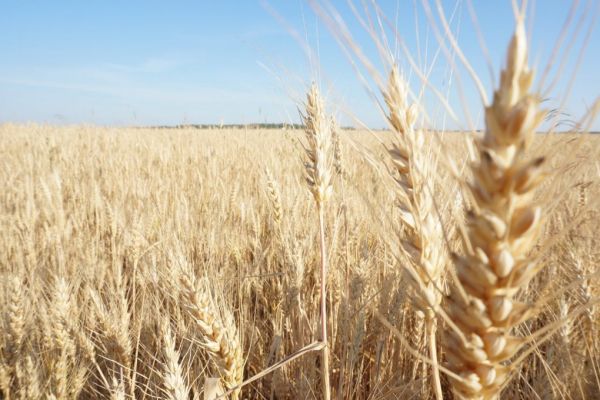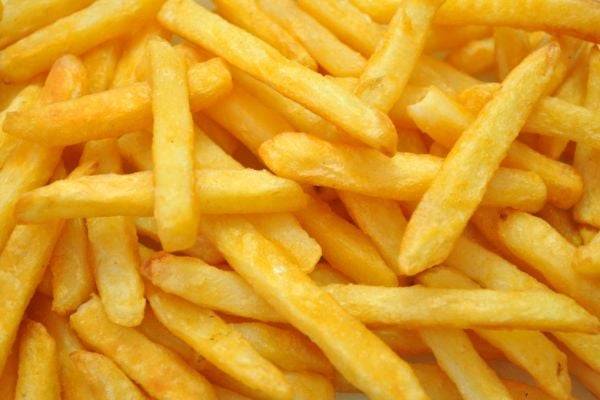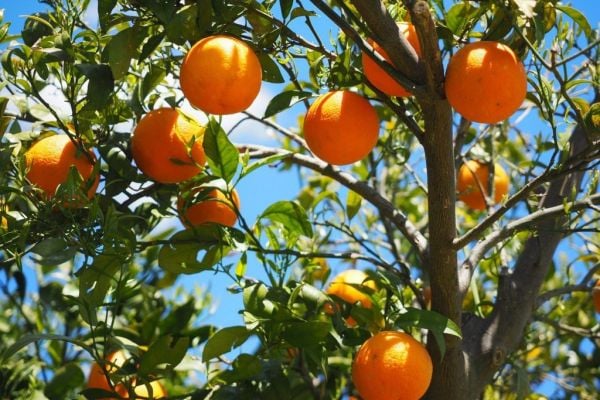The European Commission has announced restrictions on the imports of Ukrainian wheat, maize, rapeseed and sunflower seed in Poland, Hungary, Romania, Slovakia and Bulgaria until 5 June.
The move led to Poland, Hungary, Slovakia and Bulgaria lifting unilateral import bans they had imposed citing the need to protect their farmers. Romania had not banned imports.
Here are some of the issues:
Why Is Ukraine Exporting Through Eastern Europe?
Ukraine mainly exported agricultural products through ports in the Black Sea until they were blocked by Russia last year.
Three ports in the Odesa region were subsequently re-opened under a UN-backed pact reached in July to create a safe corridor for exports to help tackle the global food crisis.
Other Ukrainian ports, including one of the most important, Mykolaiv, remain closed.
Ukraine, one of the world's largest exporters of grains and oilseeds, has instead turned to land routes and expanded exports through small Danube river ports.
The easiest land route, north through Russian-ally Belarus, has been effectively shut off, forcing Ukraine to move as much grain as possible through eastern Europe.
To facilitate this option, the European Union announced a one-year suspension on import tariffs for Ukraine, in June 2022.
How Much Have Exports To Eastern Europe Risen?
The increase in exports of Ukrainian grains and oilseeds through the eastern European Union has been huge.
Ukrainian customs data shows that in 2022, 3.39 million tonnes of corn, 1.47 million tonnes of wheat and 529,689 tonnes of barley were exported to Romania.
In 2021, only 526 tonnes of corn were exported, with no shipments of wheat or barley.
Poland, meanwhile, received 2.08 million tonnes of corn, 579,315 tonnes of wheat and 44,114 tonnes of barley in 2022.
The previous year a meagre 6,269 tonnes of corn and 3,033 tonnes of wheat were exported to Poland, with no barley.
There have also been steep rises in exports to Hungary and Bulgaria although the volumes are not as high as those going through Romania and Poland.
Why Are Eastern European Farmers Unhappy?
Farmers in eastern Europe initially benefitted financially from the Ukraine conflict as prices for their crops rose sharply in line with global grain markets.
They have, however, faced increased competition in local markets from Ukrainian grain and oilseeds. The farmers have also found it more difficult and more expensive to transport their crops as many of the trucks and railwagons they would typically use are carrying large volumes of supplies from Ukraine instead.
A sharp drop in prices during the last few months has also added to their concerns, with some blaming Ukrainian imports. The price declines, however, are a global trend which traders attribute to factors such as strong exports from Brazil and Russia, as well as weaker-than-expected demand from China.
A drought in parts of Central Europe last year also created financial difficulties for farmers in the region.
Hungary's corn crop, for example, fell to 2.8 million tonnes last summer, less that half the previous season's 6.4 million, according to International Grains Council (IGC) estimates.
How Important Are These Exports To Ukraine?
The closure of Ukraine's ports last year forced the country to export grains and oilseeds through the eastern EU by rail, truck, barge and even ferry.
It all went through the eastern European Union as Ukraine's borders with Russia and Belarus have been closed.
The United Nations-backed agreement to allow a safe corridor to export by sea has taken some of the pressure off land routes.
UN data shows about 29.3 million tonnes of agricultural products have been exported from Ukraine's Black Sea ports under the safe corridor, including 14.8 million tonnes of corn.
The inclusion of just three ports, however, means the capacity has been insufficient and agricultural products have still been moving by land, even though it is generally a more expensive option than by sea.
Ukraine is forecast, for example, to export about 24 million tonnes of corn during the current 2022/23 season (July/June), according to IGC data. But only 62% has been shipped through the corridor with less than two months left in the season.
The importance of land routes, however, will increase massively if Russia refuses to extend the deal to allow shipments through the corridor beyond mid-May.
How Important Are These Exports To The Global Market?
Ukraine was the world's fourth largest grain exporter in the 2020/21 season, trailing the United States, Argentina and Russia, according to IGC data.
Ukrainian grain was shipped to 95 countries that season with major buyers including China, Egypt, Pakistan, Spain and Libya.
The challenges of growing and transporting crops in a country at war has, however, diminished its importance.
The IGC has forecast that Ukraine will export 28 million tonnes of grain in the 2023/24 season, which would make it the world's eighth-largest exporter.
Much of the shortfall from Ukraine has been picked up by Brazil, where exports have almost doubled from 26.2 million tonnes in 2021/22 to 50.9 million in the current 2022/23 season.
How Has The Conflict Affected Grain Prices?
Prices for wheat and corn surged after the war in Ukraine started on fears the conflict could disrupt shipments from two of the world's top grain exporters. However, they have since fallen back to pre-war levels.
This is partly because Russian wheat exports have actually risen following a record harvest last summer.
A decline in Ukraine's corn exports has also been offset by a jump in shipments from Brazil.
News by Reuters, edited by ESM – your source for the latest supply chain news. Click subscribe to sign up to ESM: European Supermarket Magazine.














